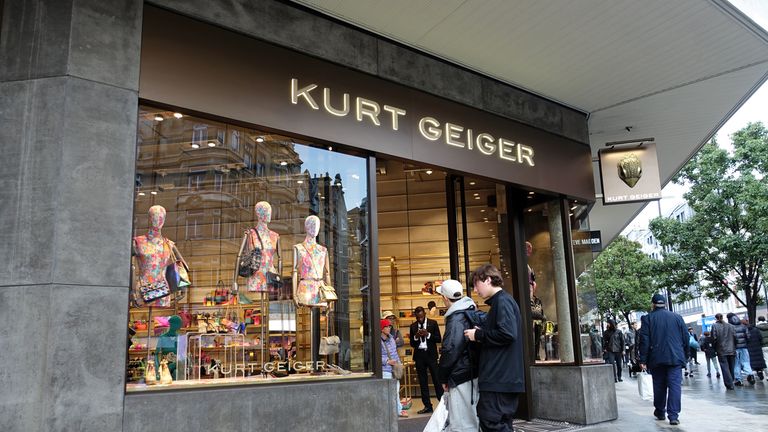
A resurgent UK economy and caution from the Bank of England have sparked a stunning rally for the pound this year as it climbed against both the dollar and euro.
This momentum recently led to sterling jumping to its highest level in more than two years, helping holidaymakers lock in better value when travelling abroad.
However, more ground is still to be gained for sterling, City analysts believe, driven by the expectation the Bank will cut rates more slowly than peers abroad.
This has made Britain an increasingly attractive place for international investors to put their money.
Yet, it is not Threadneedle Street alone that has made an impact as “gangbusters” economic growth has helped to make the pound the world’s best-performing major currency this year.
Since January, sterling has risen almost 5pc against the dollar and 4pc against the euro, taking the pound to $1.34 and €1.20 respectively.
That means British tourists are handed a boost when spending abroad.
It also helps to lower the cost of goods imported into the UK, including energy, as oil is traded in dollars across international markets.
Kamal Sharma, at Bank of America, predicts the pound will rise to $1.41 against the dollar next year and €1.25 against the euro as Britain’s economy improves.
“We are seeing a fundamental reassessment of UK growth prospects,” he said.
“That is largely due to the strength of the UK economy and the strength of the services sector – we are in a pretty healthy situation in terms of growth. That has been a significant driver for sterling strength.”
The investment bank’s survey of fund managers revealed that investors are moving money out of the US and emerging markets, and into the UK and eurozone.
Britain’s stock market is also Europe’s most popular, the survey revealed, with companies in the UK deemed relatively attractive on the global stage for the first time in several years.
Economists at Goldman Sachs also expect the pound to rise as high as $1.40 over the next year as the Federal Reserve slashes rates.
Jane Foley, at Rabobank, said the pound benefitted from Sir Keir Starmer’s election victory in July as investors hailed a renewed sense of stability.
“The UK general election brought a new Labour Government,” she said. “This led to a wave of enthusiasm regarding the potential for better UK investment growth being triggered by a calmer political backdrop.”
And while that enthusiasm has dipped amid the Government’s gloomy narrative, the pound’s rally should continue while turmoil in France damages the euro.
“French budget difficulties have the capacity to weigh on the euro in the coming weeks,” said Ms Foley.
Closer to home, a lot could still change in the coming weeks as Rachel Reeves unveils her first Budget and the Bank determines the pace of interest rate cuts.
Matthew Amis, at Abrdn, said: “Between now and November, Rachel Reeves will deliver her first Budget and this will be fundamental to how the Bank positions itself going into 2025.
“The UK is currently winning its battle with elevated levels of inflation but isn’t out of the woods yet. Reeves needs to be careful not to relight this fire. If she does, the result will be interest rates at higher levels for longer and a stronger pound.”
Lefteris Farmakis, of Barclays, expects the pound to edge up to $1.35 over the next year before rising to €1.25 against the euro.
He said: “The next Budget is a potential, but likely temporary, bump on the road. Perceived anti-growth measures such as tax hikes and fiscal tightening tend to weigh on the pound. However, their size does not appear large enough to derail sterling’s positive momentum.”
Disclaimer: The copyright of this article belongs to the original author. Reposting this article is solely for the purpose of information dissemination and does not constitute any investment advice. If there is any infringement, please contact us immediately. We will make corrections or deletions as necessary. Thank you.



